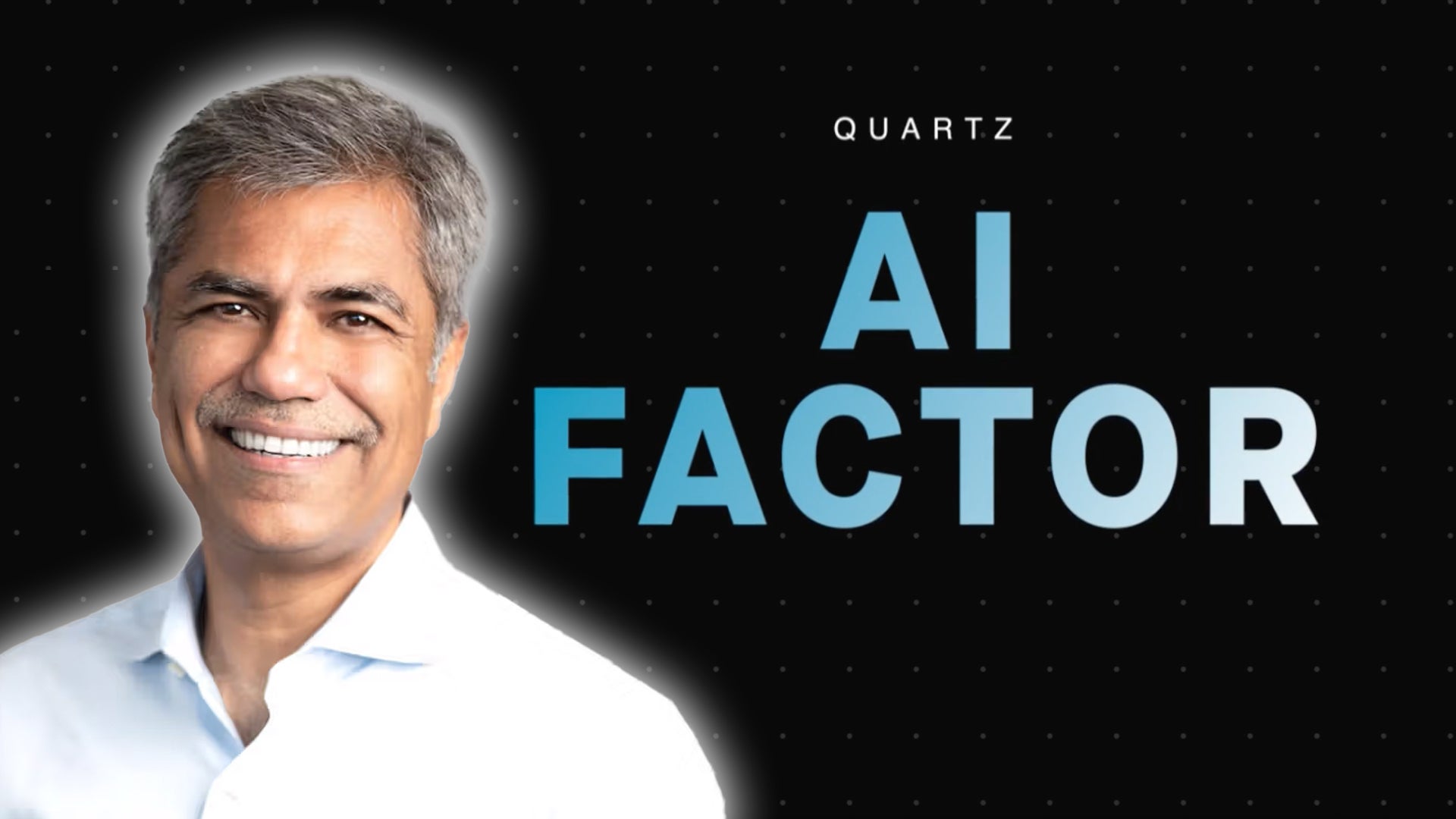AI regulation will slow innovation to speed it up, DataStax CEO says
Chet Kapoor talked Nvidia, regulation, and building out enterprise generative AI in the latest episode of Quartz AI Factor

As artificial intelligence continues to barrel forward with increasingly capable models and applications, DataStax chief executive Chet Kapoor thinks governments will be more involved in the rollout of the technology — and that won’t necessarily be a bad thing.
While Kapoor said he’s generally not in favor of government intervention because it risks stifling innovation, he’s all for it when it comes to AI.
“Governments will have to be a little bit more involved,” the CEO said in the latest episode of Quartz AI Factor, a video interview series set at the Nasdaq MarketSite (NDAQ). “We will need to think about governance from a country perspective, from an industry perspective, from a company perspective.”
“In doing all of that, we may slow down things a little bit,” said Kapoor, whose company is a data platform providing stacks used by enterprises to build generative AI applications. “But we’ll be slowing it down to speed it up.”
AI raises a number of red flags that regulators around the world will be forced to contend with, including data privacy, cybersecurity, and algorithmic biases. Although there are no federal rules explicitly aimed at AI in the U.S., the Biden administration has released an executive order on the safe use and development of AI, as well as a blueprint for a so-called “AI Bill of Rights.” Both documents aim to mitigate some of the risks associated with AI and lay the groundwork for further legislation.
But President-elect Donald Trump has taken an deregulatory stance on most industries, particularly the financial services and housing sectors. When it comes to AI, he reportedly plans to repeal the Biden-era executive order and could instruct federal agencies to take a more hands-off approach to AI.
Given that any number of guardrails could slow the progress on AI, albeit temporarily, Kapoor isn’t worried about AI outpacing what his company can provide. He’s excited about the opportunities AI is creating for companies — both AI native and non-native alike — to bolster their technological capabilities.

“The AI natives get AI intuitively, they’re building their companies, their apps and things like that on it. They know exactly how to bring the different pieces together,” Kapoor said. “And I’m not talking about OpenAI and Google (GOOGL), I’m talking about the people starting companies in garages and the new Salesforces.”
“The real fun, the real opportunity is not just those companies,” he added. “The real opportunity is how do you make sure that 30 million developers who are developing technology all over the world can actually use tools to build gen AI apps?”
In October, DataStax announced its DataStax AI Platform, built using Nvidia (NVDA) AI. The platform, which integrates Nvidia AI Enterprise software, reduces AI development time by 60%, the company said.
Kapoor said DataStax’s partnership with Nvidia has allowed the company to offer a tool that helps make developers more agile, and makes developing genAI apps more cost effective and scalable.
“At the end of the day, we care about two things. Just two things,” he said. “We care about building products that developers love, that change the trajectory of the enterprises that they work for. Nvidia helps us with both.”
Watch the latest episode of Quartz AI Factor above.